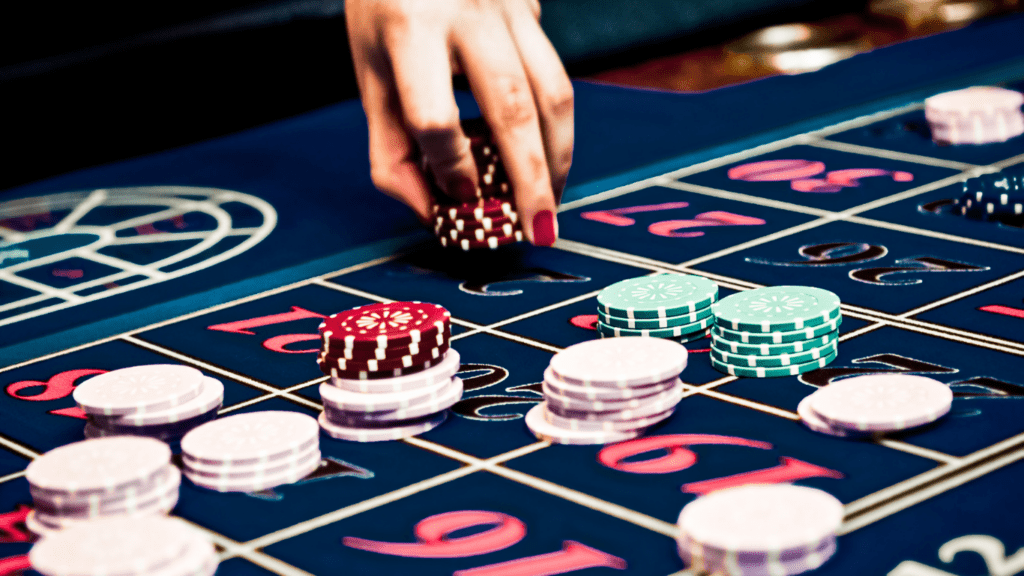Gaming can be an exhilarating escape, but without healthy limits, it can quickly turn from a fun hobby into an overwhelming obsession. I’ve experienced the fine line between enjoying my favorite games and losing track of time.
That’s why I believe it’s crucial to establish boundaries that keep gaming enjoyable and balanced.
Importance of Setting Healthy Limits
Setting healthy limits on gaming is crucial for several reasons. First, it promotes better mental well-being. Gamers who maintain boundaries often report lower stress levels. Second, healthy limits enhance physical health.
Prolonged gaming can lead to issues like eye strain and poor posture. Limiting playtime ensures I remain active and attentive to my body. Third, creating a balanced schedule allows me to prioritize other life activities.
Engaging in social interactions, pursuing hobbies, and focusing on responsibilities improves overall satisfaction. Fourth, setting limits fosters healthier gaming habits. It encourages me to choose quality games over quantity, leading to a more fulfilling experience.
Lastly, establishing boundaries can combat gaming addiction. Recognizing signs of excessive gaming helps me stay aware of my habits and adjust when necessary. Healthy limits contribute significantly to a well-rounded life, ensuring gaming remains a source of enjoyment rather than a source of stress.
Tip 1: Establish Clear Time Limits
Setting specific time limits keeps gaming enjoyable and prevents it from becoming an unhealthy obsession. By defining how long I can play, I balance gaming with other important aspects of life.
Use Timers and Alarms
Using timers and alarms helps me stick to my gaming schedule. I set a timer before I start playing to alert me when my allotted time is up. This strategy encourages me to make the most of my gaming session while staying aware of how much time has passed.
For example, I might set a 90-minute timer which gives me a focused block to immerse in gameplay while promoting mindfulness about my limits.
Create a Gaming Schedule
- Structured Gaming Schedule: Allocating specific gaming times each week helps balance play with other responsibilities.
- Maintaining Balance & Discipline: Scheduling prevents impulsive sessions, ensuring gaming doesn’t interfere with work, social life, or well-being.
Tip 2: Prioritize Real-Life Responsibilities
Maintaining a healthy balance between gaming and real-life responsibilities is crucial for overall well-being. I find that prioritizing daily tasks enhances my gaming experience and keeps my life organized.
Balance Gaming with Daily Tasks
Balancing gaming and daily tasks requires effective planning. I schedule gaming sessions around important tasks, such as work, school, and chores. For instance, I complete essential assignments or household chores before I start gaming.
This approach ensures that I enjoy gaming without the stress of unfinished responsibilities. Using a digital or physical planner can help keep track of tasks and gaming times. By doing so, I stay organized and prevent gaming from overtaking my responsibilities.
Communicate with Others
Communicating with family and friends about my gaming schedule proves essential. I share my plans with them to set expectations and strengthen relationships. For example, notifying family members of my gaming hours allows them to understand my commitments and avoid interrupting me during gameplay.
Additionally, discussing my gaming time helps manage social activities, making it easier to engage in face-to-face interactions. By fostering open communication, I maintain a supportive environment that balances my gaming hobby with real-life connections.
Tip 3: Be Mindful of Your Emotional State
Being aware of my emotional state while gaming helps maintain a healthy balance. Recognizing how gaming affects my emotions can lead to better decision-making regarding playtime and engagement.
Recognize Stress Signals
I pay attention to stress signals that arise during gaming. Signs like frustration, anger, or anxiety indicate that it’s time to reassess my gaming session. For instance, if I find myself easily irritated after a challenging level or encounter, I take a moment to evaluate my emotional response.
Acknowledging these feelings helps me decide if I need to pause or shift my focus to something more relaxing.
Take Breaks When Needed
I prioritize taking breaks when needed to recharge emotionally. Regular intervals, such as a 5-10 minute break every hour, allow me to reset. During these breaks, I step away from the screen, stretch, or hydrate.
This practice not only reduces fatigue but also enhances my overall enjoyment of gaming by keeping my emotions in check. Implementing breaks prevents frustration from escalating and maintains a positive gaming experience.
Tip 4: Create a Conducive Gaming Environment
A conducive gaming environment enhances focus and enjoyment. Setting up the right space boosts performance and promotes healthy gaming habits.
Designate a Gaming Space
I recommend designating a specific gaming area. This space should be comfortable and free from interruptions. Choose a quiet location with good lighting and a supportive chair. An organized setup, including proper cable management and ample charging stations, can prevent distractions.
Personalizing the space with your favorite gaming accessories or artwork adds motivation and makes it feel welcoming.
Limit Distractions
I limit distractions to maintain concentration during gaming sessions. Turn off notifications on devices and silence any unnecessary background noise. Use noise-cancelling headphones if needed. Consider informing family members or housemates of your gaming schedule, so they know when not to interrupt.
Keeping the gaming area tidy and clutter-free also minimizes visual distractions, allowing for deeper immersion in the game.
Tip 5: Monitor Game Content
Monitoring game content plays a crucial role in maintaining healthy gaming habits. Selecting appropriate games enhances enjoyment while minimizing negative influences.
Choose Games Wisely
Choosing games wisely involves reviewing ratings and content descriptions. I prioritize games that match my values and comfort levels. Resources like the Entertainment Software Rating Board (ESRB) provide essential insights into game content.
Games with high violence, explicit themes, or addictive mechanics often lead to unhealthy gaming habits. By selecting games with positive messages or problem-solving elements, I ensure my gaming aligns with personal growth and entertainment.
Understand Game Mechanics
Understanding game mechanics is vital for making informed decisions. Game mechanics dictate the interaction between players and the game world. I analyze how these mechanics can affect my gameplay experience.
For example, reward systems that encourage prolonged play can foster addictive behaviors. Identifying games with balanced progression mechanics ensures I engage for enjoyment rather than compulsion. Additionally, grasping in-game economics helps me avoid spending pitfalls, like microtransactions, that could interfere with budget management and time limits.
Tip 6: Engage in Other Activities
Engaging in other activities is essential for maintaining balance while gaming. Integrating various interests prevents gaming from becoming all-consuming and enriches my daily life.
Find Hobbies Outside Gaming
Explore hobbies that align with my interests and provide mental stimulation. Options could include reading, painting, cycling, or playing a musical instrument. Hobbies enhance creativity, relieve stress, and offer opportunities for relaxation.
Allocating time weekly for these activities can help cultivate new skills, boost mood, and foster a sense of accomplishment outside the gaming sphere.
Encourage Social Interactions
Seek opportunities for social interactions that don’t involve gaming. Participating in local events, joining clubs, or spending time with friends and family strengthens relationships and supports mental well-being.
Engaging in conversations, attending group activities, or volunteering can provide fulfilling experiences that complement gaming. Prioritizing face-to-face interactions fosters connection while ensuring that gaming remains a part of a well-rounded lifestyle.
Tip 7: Set Goals for Gaming Sessions
Setting specific goals for gaming sessions enhances the experience and adds structure. Goals focus gameplay, increase motivation, and help measure progress.
Track Achievements
Tracking achievements fosters intentional gameplay. I use built-in game tracking systems or external tools to log accomplishments, such as completing quests or reaching levels. This allows for a clear sense of progress, making gaming more rewarding.
I often reflect on my achievements after sessions, which reinforces motivation to set and achieve future goals. Keeping a record helps me evaluate what I enjoy most about each game, guiding my choices in future sessions.
Reward Yourself
Rewarding myself for achieving goals maintains motivation and makes gaming feel more fulfilling. I set milestones, such as completing a challenging level or mastering a game mechanic, and plan small rewards, like a favorite snack or an episode of a show.
This approach creates a positive association with gaming, where accomplishments lead to enjoyable experiences beyond the screen. I find that this strategy promotes a balanced relationship with gaming by encouraging me to earn leisure time through focused effort.
Tip 8: Involve Friends and Family
Involving friends and family in gaming encourages accountability and enhances the overall gaming experience. Their support can help maintain healthy limits while making gaming more enjoyable.
Play Together Responsibly
Playing games with friends and family can strengthen bonds and create shared experiences. I prioritize cooperative or multiplayer games that promote teamwork and communication. Setting group boundaries on gaming time ensures everyone balances play and responsibilities.
Planning gaming sessions in advance helps allocate time for other activities, fostering a more balanced lifestyle.
Seek Support When Needed
Seeking support from friends and family can provide motivation to stick to gaming limits. Sharing goals and challenges with loved ones allows for open communication regarding healthy gaming habits.
I find that discussing feelings about gaming or sharing experiences can help identify when limits are being pushed. Having a support network makes it easier to adjust gaming practices and accountability among peers, ensuring gaming remains a positive aspect of life.
Tip 9: Reflect on Your Gaming Experience
Reflecting on gaming plays a crucial role in understanding its impact on my life. Regular evaluation enhances my enjoyment while ensuring I keep gaming in check.
Keep a Gaming Journal
Maintaining a gaming journal helps track my thoughts, feelings, and experiences during gaming sessions. I record details like game selection, duration, and emotions encountered while playing.
This practice reveals patterns in my habits, allowing me to recognize triggers for both positive and negative experiences. By reviewing my entries regularly, I identify areas for improvement, ensuring gaming remains a healthy and enjoyable activity.
Assess Your Gaming Habits
Assessing my gaming habits involves a thorough evaluation of time spent gaming and the impact on my daily life. I analyze whether gaming interferes with responsibilities or relationships. I ask questions like: Am I gaming more than planned? Is my mood affected negatively? This self-analysis promotes accountability and fosters intentionality in gaming choices.
By reflecting on my habits, I can adjust my approach, ensuring gaming complements rather than detracts from my overall well-being.
Tip 10: Know When to Seek Help
Feeling overwhelmed by gaming can indicate a need for professional support. Recognizing signs of unhealthy gaming patterns is crucial to maintaining balance.
Recognize Signs of Gaming Addiction
I keep an eye out for behaviors that signal a gaming addiction. Signs include neglecting daily responsibilities, losing interest in other hobbies, or prioritizing gaming over relationships.
Additionally, spending excessive time gaming despite negative consequences, like poor sleep or academic decline, demands attention. Emotional changes, such as experiencing irritability or anxiety when unable to play, also indicate potential issues. Spotting these signs early enhances my ability to take proactive measures.
Seek Professional Guidance
I embrace the idea of seeking professional support whenever necessary. Consulting with mental health professionals who specialize in gaming addiction can provide essential tools for recovery.
Therapists may use cognitive-behavioral techniques to address unhealthy gaming habits. Joining support groups can create a network of individuals facing similar challenges, promoting shared experiences and healing. Reaching out for help reaffirms my commitment to a balanced, healthy gaming lifestyle.





